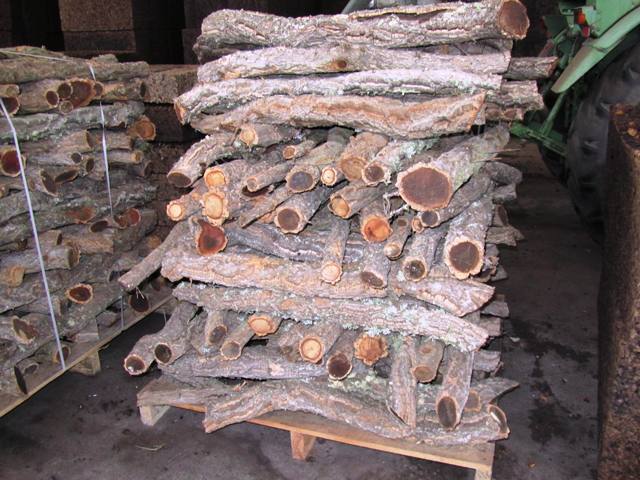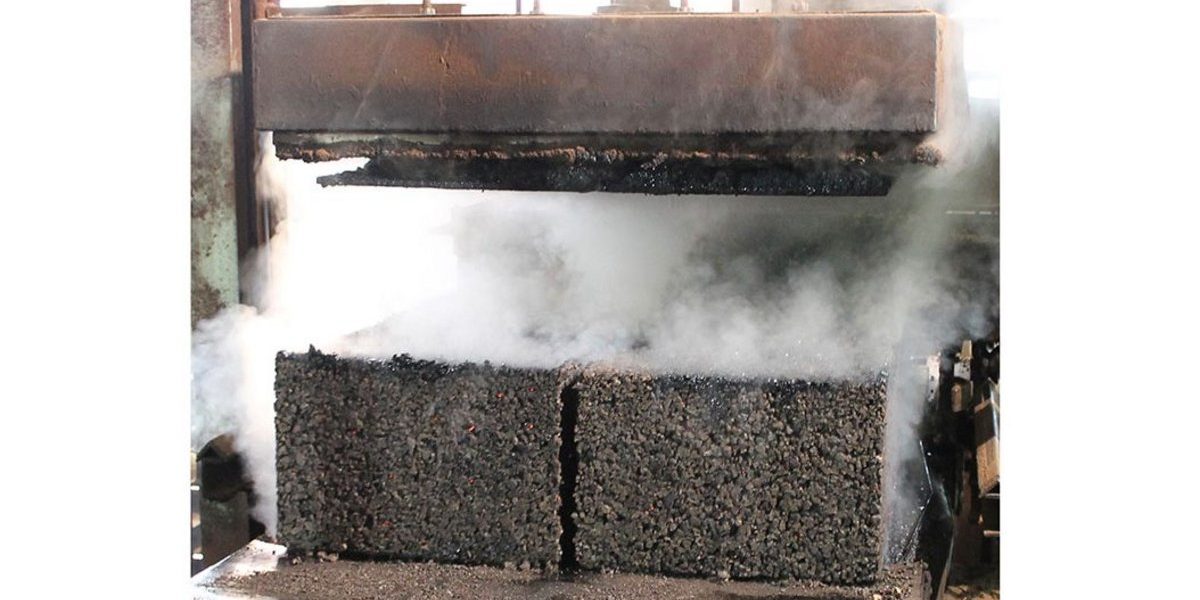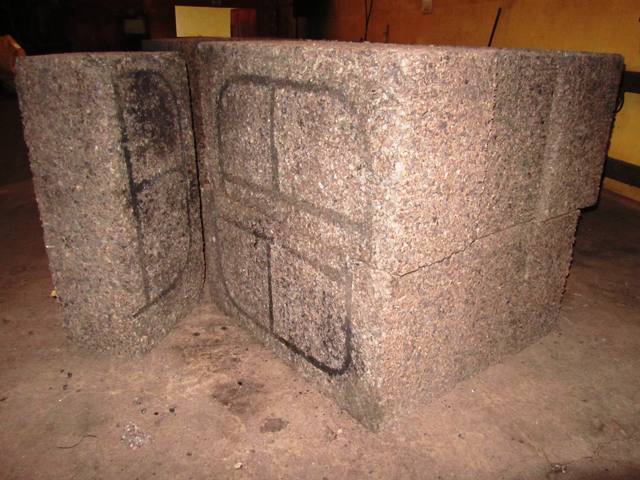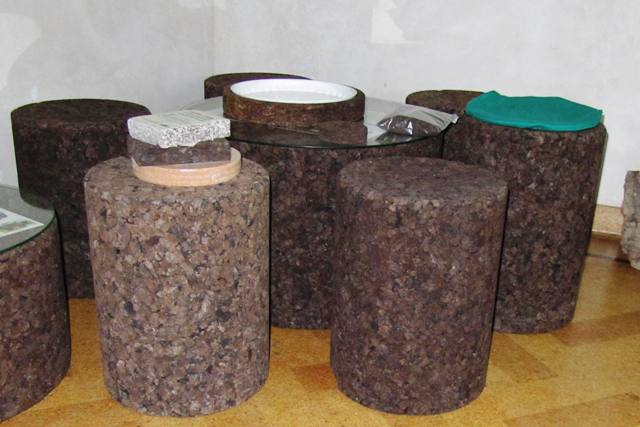Expanded cork (or black cork) is made from the bark of the cork tree that is of too poor a quality to be used for making natural wine corks. Principally this is from branches that are pruned from cork trees (see photo below), fire damaged cork from forest fires and ‘virgin’ cork (the cork that come from the first harvest of a cork tree that does not have sufficient density to be used for wine corks). This lower quality cork has high quantities of resin in it, which is a key ingredient to the process (see below).

Because the cork that is used to make expanded cork is of lower quality, it typically contains a relatively high percentage of wood and dirt; so it is ground down to granules of approximately 20mm and the cork is sorted from this wood and dirt (the wood is then used to heat the furnaces to produce steam, used later on in the process). It then is placed in moulds (1000x500x300mm) and steam heated to 400ºc is passed through it. These high temperatures encourage the cork to liberate the resins it holds and for the cork itself to expand and after two hours the granules are bonded together by the naturally occurring resin to fill out the mould to form a block (see photo). These blocks are then left to cool off and stabilize before they can be processed.
These blocks can then be cut into different dimensions according to the end usage – generally they are cut into boards of 1000x500mm with thicknesses of between 10mm and 150mm. These cork boards can then be applied directly to be used for insulation of buildings (for more information about the acoustic and thermal insulation properties of expanded cork click here), or they can be cut and shaped using CNC machines or normal saws and then sanded down to make decorative items, such as the stools, chairs and tables shown below. When expanded cork is used to make decorative items, sometimes it is necessary to produce the cork at higher densities to make the products more durable. Any excess granules of black cork that are generated by cutting and shaping can then be sold to be mixed with concrete to produce an ultra-lightweight concrete filler.
One of the great things about black cork is the fact that it is a great use of resources, as it uses up cork bark that would otherwise not be usable, it does not require any trees to be cut down for its production and the process itself generates the fuel to power the furnace, so fossil fuels are not necessary. As well as all of this, expanded cork is one of the best natural and acoustic insulation materials that exists as well as being attractive to look at. Please contact us if you would like to find out more about sourcing expanded cork direct from Portugal.
You can see our pricing for expanded cork boards clicking here.










